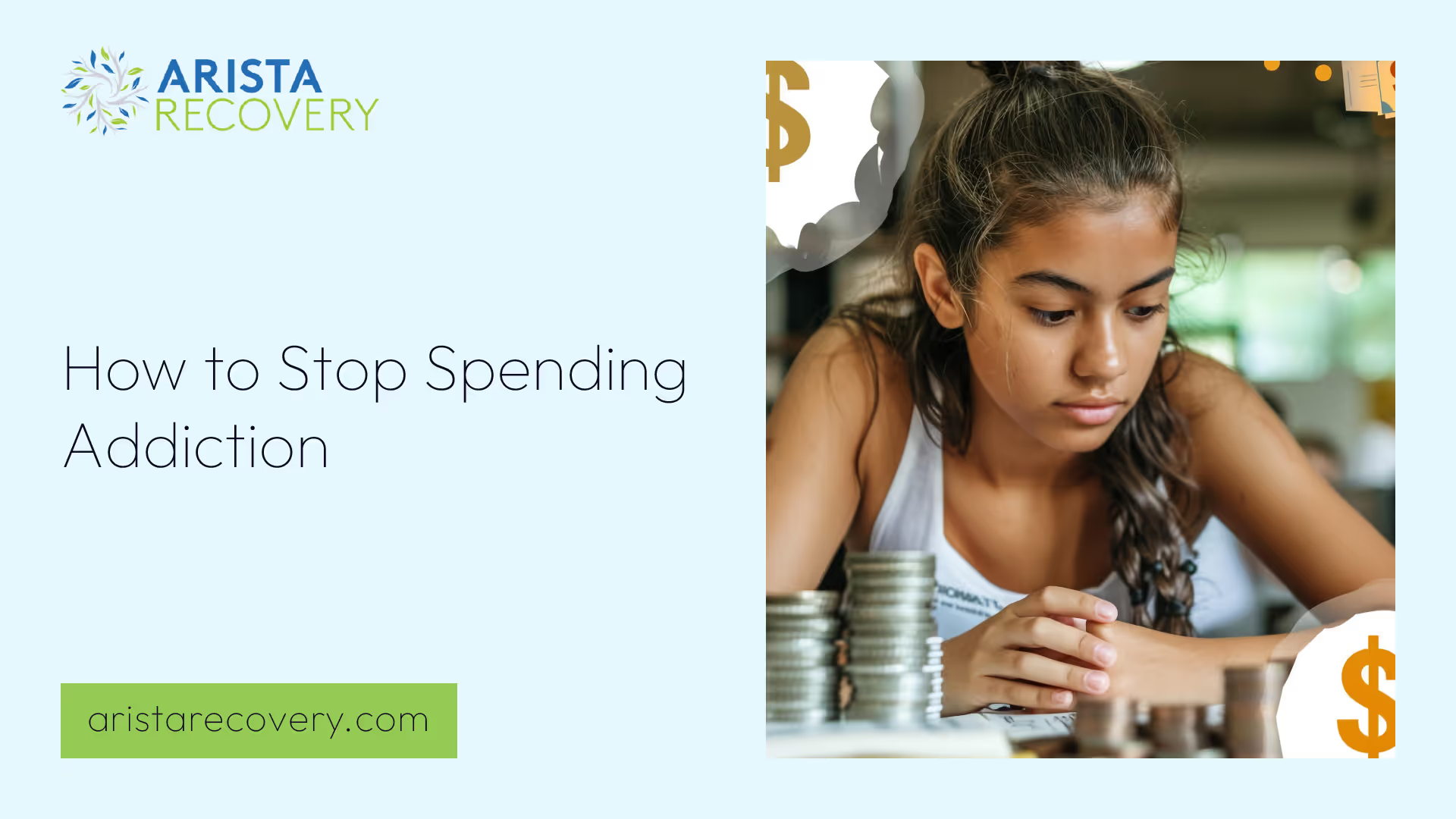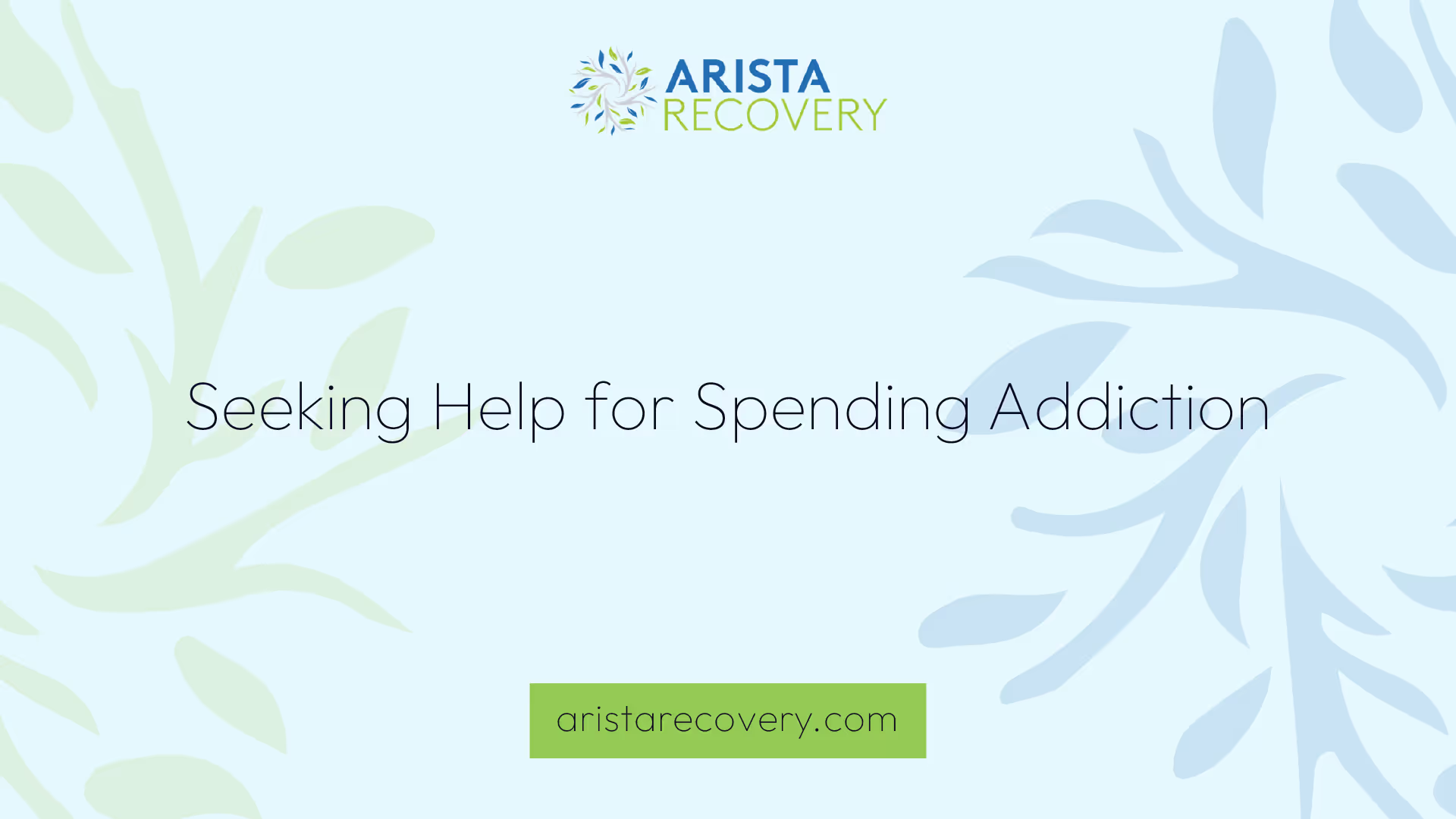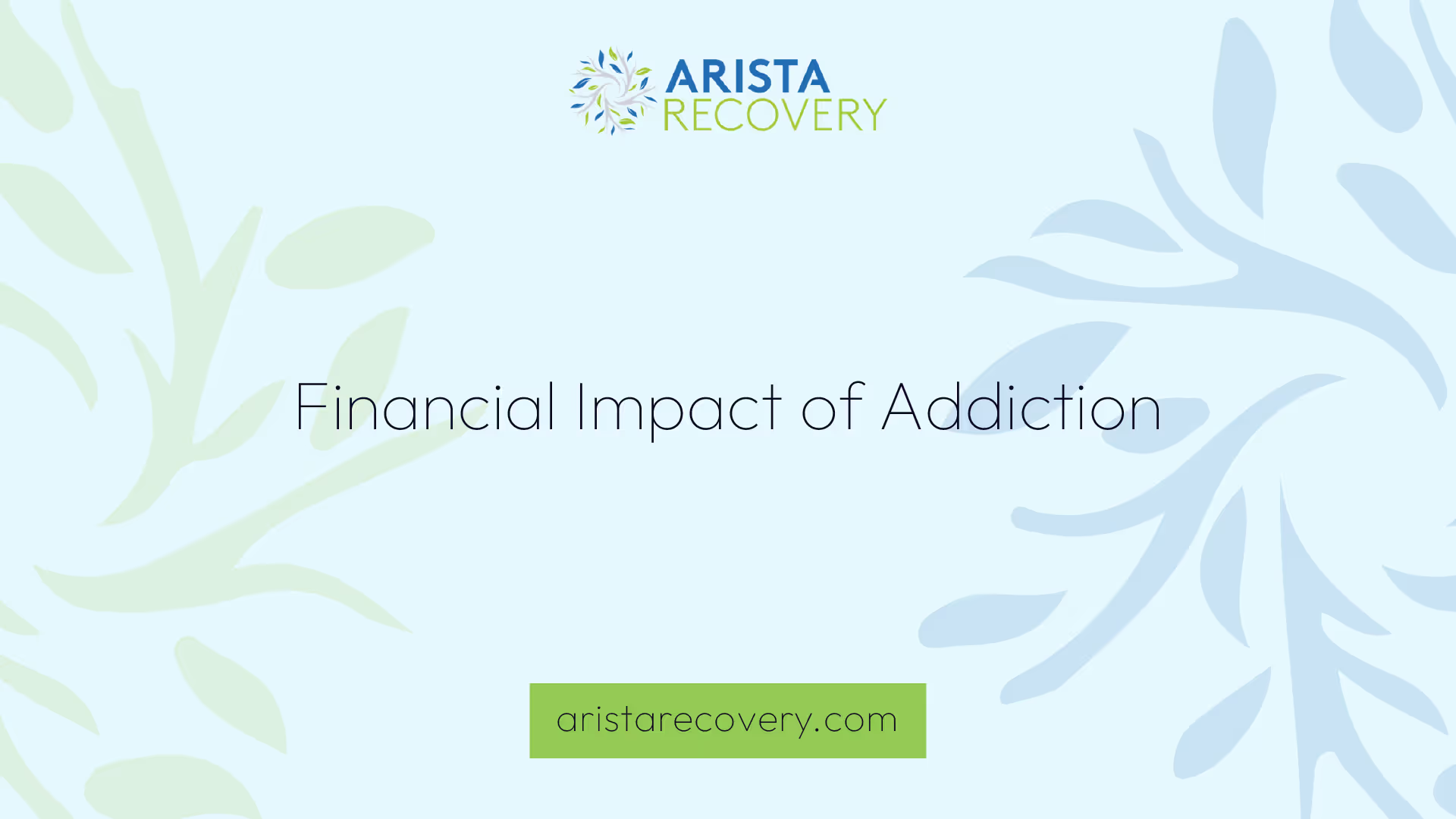
How to Stop Spending Addiction

Understanding Spending Addiction
Impact of Compulsive Buying
Spending addiction, also known as compulsive buying disorder, is a behavioral addiction where individuals engage in excessive shopping to feel good and avoid negative emotions such as anxiety, depression, and boredom. This addiction can lead to numerous problems in various areas of life, including financial instability, strained relationships, and emotional distress.
Compulsive buying often results in significant financial debt, which can take years to overcome. This addiction also tends to co-occur with other disorders such as mood and anxiety disorders, substance use disorders, eating disorders, and other impulse control disorders. For individuals seeking help, understanding the impact of their addiction is the first step toward recovery.
Common Impacts of Compulsive Buying
- Emotional Distress: Feelings of guilt, shame, and regret after shopping.
- Financial Problems: Accumulation of debt, inability to meet financial obligations.
- Relationship Issues: Strained relationships due to excessive spending and secrecy.
- Mental Health: Exacerbation of existing mental health conditions such as depression and anxiety.
Prevalence and Onset
Approximately 6% of the U.S. population is thought to have a shopping addiction. This condition can affect individuals of all ages, genders, and socioeconomic statuses, though it is often linked to materialistic values and seeking approval through possessions.
Statistics on Shopping Addiction
The onset of shopping addiction can be gradual, often starting as a means to cope with emotional distress. Over time, the behavior becomes more frequent and compulsive, leading to negative consequences in the individual's personal and financial life.
Related Links:
- How to Stop Food Addiction
- How to Stop My Sugar Addiction
- How to Stop Internet Addiction
- How to Stop Soda Addiction
Understanding the prevalence and onset of spending addiction is crucial for recognizing the signs and seeking appropriate help. Recognizing the early stages can prevent the condition from worsening and causing further harm.

Seeking Help for Spending Addiction
For individuals grappling with spending addiction, finding the right support system is crucial in the journey to recovery. This section explores self-help groups and online programs that provide assistance.
Self-Help Groups
Self-help groups offer a community of support for individuals dealing with spending addiction. These groups provide a safe space to share experiences, learn from others, and gain strength in numbers.
- Debtors Anonymous: Founded in 1968, Debtors Anonymous aims to help individuals stop incurring unsecured debt. The group has over 500 registered meetings in more than 15 countries worldwide, making it accessible to many.
- Spenders Anonymous: This 12-step group is based on the principles of Alcoholics Anonymous. It helps individuals stop compulsive spending and take responsibility for their finances. Membership requires a "desire to stop spending time, money, energy, and our very selves beyond all reason".
These groups provide a structured approach to recovery, emphasizing accountability and communal support. For more information on similar support systems, check out our articles on how to stop food addiction and how to stop internet addiction.
Online Programs
Online programs offer flexible and accessible options for those seeking help with spending addiction. These programs often include various tools and resources tailored to individual needs.
- Stopping Overshopping: Founded by psychologist April Lane Benson, this online program offers services such as a self-help program, private coaching, and group coaching. The program aims to help individuals control compulsive buying behavior.
Online programs can be particularly beneficial for those who prefer remote assistance or have limited access to in-person support groups. These programs often incorporate elements of financial therapy, focusing on an individual's emotional and psychological relationship with money [3].
By exploring these self-help groups and online programs, individuals can find the support they need to overcome spending addiction and achieve financial freedom. For additional resources on managing other types of addictions, visit our articles on how to stop my sugar addiction and how to stop soda addiction.

Financial Impact of Addiction
Spending addiction can significantly affect an individual's financial stability. Understanding the financial impact is crucial in addressing and overcoming this addiction.
Debt Accumulation
Debt accumulation is one of the most immediate consequences of a spending addiction. The cost of sustaining compulsive buying, combined with impulsive financial decisions, can lead to a mountain of debt. According to Securian Financial, finances are the number one cause of stress for Americans, with 77% of households dealing with some form of debt. The average American is more than $104,000 in debt, managing mortgage loans, home equity lines of credit, auto loans, credit card debt, and student loans.
Debt accumulated from a spending addiction not only causes financial strain but can also affect a person’s day-to-day life and well-being. Addressing this issue often requires a comprehensive financial rebuilding effort.
Legal and Medical Costs
In addition to debt accumulation, legal and medical costs can also be significant contributors to the financial impact of a spending addiction. Substance misuse, which often accompanies spending addiction, can lead to legal fees and medical bills. According to Spectrum Health Systems, substance misuse can wreak havoc on personal finances, leading to significant financial burdens such as legal fees, medical bills, and lost income from unemployment.
Legal costs can arise from issues such as bankruptcy filings and legal disputes over unpaid debts. Medical costs can include expenses related to treatment for physical and mental health conditions associated with addiction. These additional financial burdens can further exacerbate the stress and strain on individuals and their families.
To effectively address and manage the financial impact of spending addiction, financial therapy or counseling may be beneficial. Financial therapy focuses on financial literacy and addresses an individual’s underlying emotional and psychological relationship with money [3].
For more information on managing and overcoming addiction, check out our articles on how to stop food addiction, how to stop my sugar addiction, and how to stop internet addiction.
Overcoming Spending Addiction
Self-Compassion in Recovery
Overcoming a spending addiction requires a compassionate approach towards oneself. Embracing self-compassion is the first step towards financial recovery after addiction. It is important to acknowledge past mistakes without dwelling on them, focus on the present and future, and avoid self-criticism and negative self-talk. These negative behaviors can hinder progress. Recovery is a journey, and it's essential to be kind to oneself throughout the process.
Practicing self-compassion involves:
- Acknowledging mistakes without judgment: Understand that everyone makes mistakes and that these do not define your worth.
- Focusing on present efforts: Concentrate on what you can do now to improve your situation instead of fixating on past errors.
- Encouraging positive self-talk: Replace negative thoughts with supportive and encouraging ones.
Financial Rebuilding Efforts
Rebuilding financial freedom after a spending addiction is a gradual process that requires patience and strategic planning. By combining financial strategies with recovery efforts, individuals can create a brighter future filled with stability, security, and the freedom to pursue their dreams.
Key steps in financial rebuilding include:
- Creating a Budget:
- Track all income and expenses.
- Identify areas where you can cut costs.
- Allocate funds towards paying off debts.
- Paying Down Debt:
- Prioritize high-interest debts first.
- Consider debt consolidation if necessary.
- Avoid taking on new debt.
- Building Savings:
- Set up an emergency fund.
- Save a portion of your income regularly.
- Use automatic savings plans if possible.
- Seeking Financial Counseling:
- Financial therapy can provide support and advice specifically geared towards managing finances and reducing associated stress.
Addressing the financial impact of addiction is crucial for long-term recovery and overall wellbeing [4]. For more information on overcoming different types of addictions, you can read our articles on how to stop food addiction, how to stop my sugar addiction, and how to stop internet addiction.
Factors Contributing to Overspending
Overspending can stem from a variety of factors that subtly influence financial behavior. Understanding these factors is crucial in the journey to stop spending addiction.
Lifestyle Creep
Lifestyle creep occurs when an individual's standard of living improves as their disposable income increases. This phenomenon often results in unintentional expense increases, making it seem like discretionary income has not risen despite earning more. For instance, someone who receives a raise may upgrade their car or move to a more expensive apartment, thus absorbing the additional income without increasing their savings or investments.
Not accounting for inflation can exacerbate lifestyle creep, especially if budgets are not adjusted to accommodate cost increases. For example, as of September 2023, the average cost of unleaded gas is $3.99 per gallon [5]. This can significantly impact one's budget if not properly managed.
Emotional Impulse Spending
Emotional impulse spending is often triggered by underlying emotional or psychological issues. Individuals may use shopping as a form of escapism to distract themselves from stress, emotional pain, or other negative feelings. This behavior can lead to a cycle of temporary relief followed by guilt and regret, which can perpetuate the addiction to spending.
Understanding these patterns is essential for developing strategies to manage and mitigate emotional spending. For more insights on managing addictions, visit our articles on how to stop food addiction and how to stop soda addiction.
The availability of credit can also contribute to emotional impulse spending. Individuals may perceive credit as "extra money," leading to overspending. To counter this, it is recommended to stick to cash and debit cards to spend only what is available [5].
By recognizing the factors contributing to overspending, individuals can take proactive steps to regain control over their finances. For more strategies on overcoming these challenges, explore our sections on budget adjustments and cash vs. credit payments.
Strategies to Stop Overspending
Addressing spending addiction requires a multi-faceted approach. Implementing effective strategies can help individuals and families regain control over their financial habits. Two essential strategies include budget adjustments and choosing between cash and credit payments.
Budget Adjustments
Adjusting one's budget is a fundamental step in preventing overspending. By creating a detailed financial plan, individuals can monitor their income and expenses more effectively. The goal is to allocate funds wisely and avoid unnecessary expenditures.
- Track Expenses: Keeping a record of daily spending can highlight areas where cuts can be made.
- Set Financial Goals: Establishing short-term and long-term financial goals can provide a clearer vision of financial priorities.
- Categorize Spending: Divide expenses into categories such as necessities, savings, and discretionary spending.
- Review and Adjust Monthly: Regularly reviewing and adjusting the budget can help accommodate changing financial situations.
Simply thinking about why you feel and behave the way you do when it comes to money can be eye-opening, leading to better decision-making and fewer impulse buys.
Cash vs. Credit Payments
The method of payment can significantly impact spending behaviors. Choosing between cash and credit payments involves understanding their psychological effects.
- Cash Payments: Using cash for transactions can help limit spending to the available amount. Physically parting with money can make individuals more conscious of their purchases.
- Credit Payments: While convenient, credit cards can create a false sense of financial security. The availability of credit can sometimes lead individuals to perceive it as 'extra money', encouraging overspending [5].
Emotional impulse spending can be triggered by underlying emotional or psychological issues, such as using overspending as a form of escapism to distract from stress or emotional pain [5].
By implementing these strategies, individuals can take significant steps towards overcoming spending addiction. For additional insights on managing various types of addictions, consider exploring our articles on how to stop food addiction and how to stop internet addiction.
References
[1]: https://www.verywellmind.com/shopping-addiction-4157288
[2]: https://www.verywellmind.com/self-help-groups-for-shopping-addiction-22351
[3]: https://www.securian.com/insights-tools/articles/psychology-of-overspending.html
[4]: https://www.spectrumhealthsystems.org/rebuilding-financial-freedom-in-addiction-recovery/
[5]: https://money.usnews.com/money/personal-finance/spending/articles/inside-the-psychology-of-overspending-and-how-to-stop
When mental health challenges and addiction intersect, it can feel isolating. At Arista, we offer compassionate, evidence-based, and trauma-informed care to help you heal, grow, and move forward.
You’re not alone in this.
When mental health challenges and addiction intersect, it can feel isolating. At Arista, we offer compassionate, evidence-based, and trauma-informed care to help you heal, grow, and move forward.
Support that moves with you.
You’ve taken a brave first step. At Arista Recovery, we’re here to help you continue with best-in-class care designed for long-term healing and support.
.webp)






